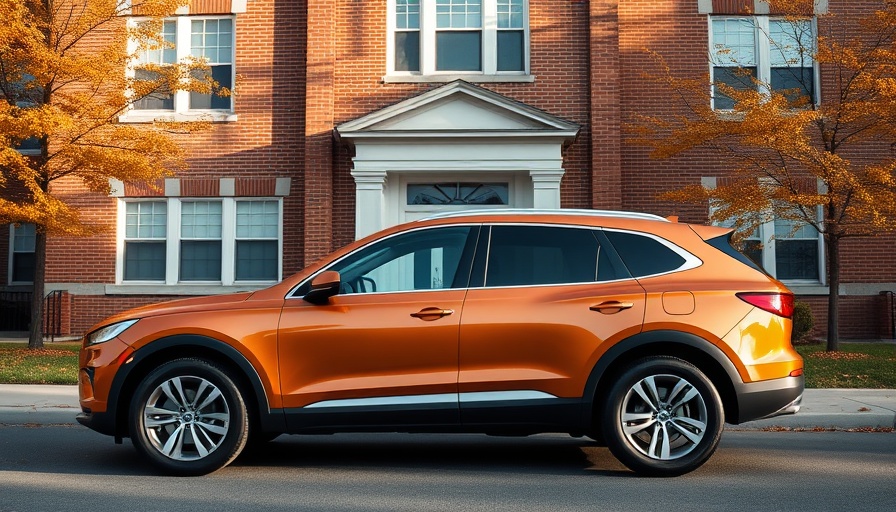
Finding the Ideal Back-to-School Car: What to Look For
As we gear up for the back-to-school season, the chase for the right vehicle becomes crucial for many families. Whether it’s to support a new college freshman’s independence or to ensure a reliable vehicle for high school drop-offs and activities, the right car should embody practicality and budget friendliness. The increasing prices in the used car market can make this challenge daunting, leaving many parents wondering where to turn.
Why Auctions Are Gaining Popularity in the Family Vehicle Market
With traditional dealership prices escalating, online auto auctions are coming to the forefront as a viable alternative. Sites like AutoBidMaster provide a range of cars, often at lower costs than those seen at physical dealerships. This shift is largely driven by the potential for families to find quality cars within their price range, allowing for a broader selection beyond typical retail options.
The Must-Have Features in a Student Car
Determining the right back-to-school car focuses heavily on several key factors that align with family needs and safety requirements. Here are the central questions parents should consider:
- Is it affordable? Smart buyers evaluate not just the initial purchase price but also ongoing costs such as insurance and fuel.
- How reliable will it be? Fewer breakdowns mean fewer calls from the road, making reliability paramount.
- What are the safety ratings? Strong crash test performances and safety features offer peace of mind for parents.
- Does it fit daily activities? Space for sports gear or school projects is essential, alongside ease of parking.
Top Affordable Cars Found at Auction
When browsing through auction listings, several models consistently emerge as solid choices for students:
- Nissan Rogue: This spacious SUV is ideal for family needs without sacrificing fuel economy.
- Toyota Corolla: Known for its longevity, the Corolla offers budget-friendly repair costs.
- Honda Civic: Both stylish and efficient, this car appeals to students while reassuring parents with its reliability.
- Ford Focus: A blend of modern comfort and low ownership costs, it stands out in the compact category.
- Hyundai Elantra: Often overlooked, the newer models are loaded with desirable features while remaining affordable.
Strategies for Navigating the Auction Process
Entering the auction world can be intimidating, but with the right strategies, parents can minimize their uncertainty:
- Set and stick to a budget: In addition to the purchase price, factor in insurance and potential repairs to ensure financial feasibility.
- Research vehicle conditions: Understanding the history of a car helps to avoid hidden costs down the road, particularly with repairs.
- Utilize condition reports: Detailed reviews can provide insight into any prior damage and help in making informed decisions.
A Closer Look at Common Maintenance Needs
In the excitement of acquiring a new car, it's crucial to remember the importance of routine car maintenance. Regular check-ups can greatly extend the lifespan of a vehicle and ensure safety on the road. Here's a brief look at what to consider:
- Routine Car Service Checklist: A regular service ensures all systems are operational.
- How to Check Transmission Fluid: Understanding fluid levels is vital to avoiding costly repairs.
- Brake Pad Replacement Costs: Keep an eye on wear and tear to ensure braking safety.
Conclusion: The Value of A Smart Investment
Navigating the back-to-school car market does require some effort, but the rewards—a reliable vehicle that meets family needs—are worth it. By exploring auction possibilities and focusing on key car features, families can secure a great deal while ensuring they make a smart investment.
So, are you ready to start your search for the perfect back-to-school car? Consider beginning your journey at reliable auto auction platforms like AutoBidMaster where you'll find countless options tailored to fit your family's needs.
 Add Row
Add Row  Add
Add 




Write A Comment